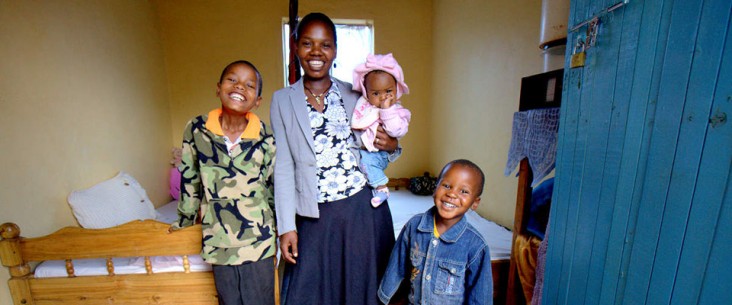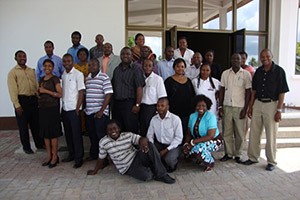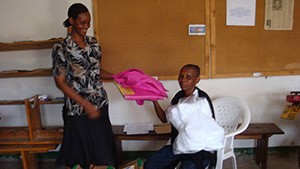- What We Do
- Agriculture and Food Security
- Democracy, Human Rights and Governance
- Economic Growth and Trade
- Education
- Ending Extreme Poverty
- Environment and Global Climate Change
- Gender Equality and Women's Empowerment
- Global Health
- Water and Sanitation
- Working in Crises and Conflict
- U.S. Global Development Lab

Tanzania, like other sub-Saharan African countries, has a generalized HIV epidemic where approximately 2.1 million people are HIV-infected. Prevalence varies widely between districts, ranging from 0.3 percent to 15.9 percent. To prevent the spread of HIV, the Government of Tanzania has outlined policies and strategies aimed at people living with HIV. These efforts engage both community programs and health facilities to integrate positive health, dignity and prevention components into ongoing HIV and AIDS services.

The Ministry of Health and Social Welfare requested FHI 360, an implementing partner, to conduct a pilot intervention to explore the feasibility of integrating components of PHDP into existing HBC programs. In May 2009, with support from USAID, FHI 360 and the National AIDS Control Program (NACP), the Ministry of Health and Social Welfare began the pilot implementation through the Deloitte/FHI TUNAJALI program.
Home-based care volunteers and PLHIV support group members, working with community-based HIV service organizations, were trained and equipped with HBC kits containing first aid essentials, water purification reagents, condoms, medicated soaps and insecticide-treated mosquito nets. The majority (75 percent) of the 101 volunteers were PLHIV. Beneficiaries of the project were PLHIV and their household members.
The project implemented and assessed four main community PHDP components:
- Prevention of onward HIV transmission
- Prevention of diseases
- Healthy living practices
- Promotion of open dialogue and discussion
A cohort study with 1,746 beneficiaries (68.8 percent females and 31.2 percent males) showed the following results:

- Improved partner testing and counseling: from 54.3 percent to 74.3 percent
- Increased disclosure of HIV status: from 87.9 percent to 95.3 percent
- Increased family planning use: from 28.3 percent to 43.4 percent
- Increased formation of new PLHIV support groups
- Facilitated high rate of mosquito net use: baseline 24.8 percent to 91.9 percent)
- Increased use of safe water: from 22.8 percent to 90.4 percent
- Reported increase in condom use: from 64.5 percent to 87.7 percent
PHDP Rollout Plan
Reaching out to all HBC implementing partners, FHI 360 and NACP advocated for and facilitated the adoption and implementation of community-based positive health, dignity and prevention. These programs, including 28 HBC U.S. Government partners and 104 national HBC trainers from all regions, built capacity of key stakeholders to promote, support and implement PHDP in their respective communities. In addition, FHI 360, with NACP and other key stakeholders, is integrating PHDP components in the ongoing revision of the HBC training curriculum and standard operating procedures.







Comment
Make a general inquiry or suggest an improvement.